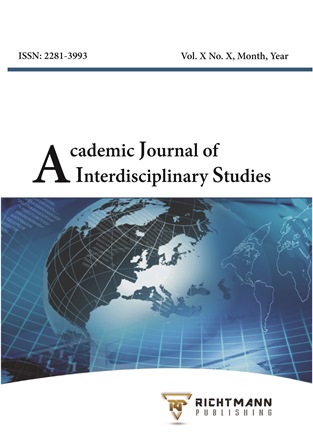Social Support and General Self-Efficacy: Predictors of Subjective Discomfort in Ecuadorian Teachers
DOI:
https://doi.org/10.36941/ajis-2022-0172Keywords:
Social Support, General Self-Efficacy, Predictors of Subjective, Ecuadorian TeachersAbstract
The crisis caused by the COVID-19 pandemic has generated new challenges for regular basic education teachers, who, day by day, interact with students and constitute a significant part of the student's development. These new circumstances have affected teachers, raising their stress levels and affecting their skills. In this context, this study aims to determine the influence of social support and general self-efficacy on subjective discomfort in Ecuadorian regular basic education teachers. The methodology used was based on the predictive design in which 311 teachers participated, 230 women and 81 men. The selected instruments were the Duke-UNK-11 Functional Social Support Questionnaire, the General Self-Efficacy Scale (GAS) and the Kessler Subjective Discomfort Scale-10. The results showed that the Social support variable significantly influences subjective discomfort, showing that teachers who have high levels of social support show lower levels of subjective discomfort. It is concluded that social support is a predictor of subjective discomfort in Ecuadorian teachers of basic education.
Received: 23 May 2022 / Accepted: 28 October 2022 / Published: 5 November 2022
Downloads
Downloads
Published
Issue
Section
License

This work is licensed under a Creative Commons Attribution-NonCommercial 4.0 International License.
This work is licensed under a Creative Commons Attribution-NonCommercial 4.0 International License.








